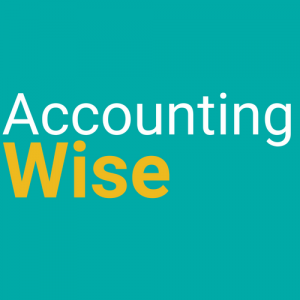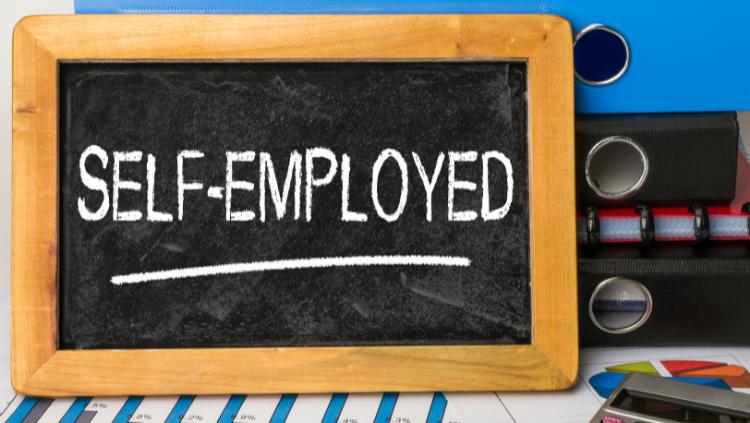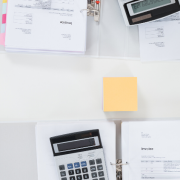How to Register as a Sole Trader
One of the first decisions to make when registering as a sole trader, is choosing between the pros and cons of different business structures. If you’ve made the decision to become a sole trader, that’s already progress!
Starting a business as a sole trader does have several advantages:
- It’s really simple to set up.
- It’s usually the easiest structure to manage financially.
- There are fewer legal responsibilities than other types of business.
- You can start trading immediately!
Chances are, you chose to become a sole trader for these reasons, and you’re probably itching to start. So, let’s get going with a straightforward guide to setting up and registering as a sole trader business.
Liability and profits for sole traders
A key point to understand when setting up a sole trader business, is that there’s no legal distinction between you and the business. Essentially, you are the business!
It means that all of the profits are yours to keep, but that you’re also liable for any debts.
This makes accounting for sole traders a bit easier to manage. You’ll need to keep accurate, up-to-date bookkeeping records of your income and outgoings.
Do sole traders need a business bank account?
Sole traders aren’t legally required to have a separate bank account for their business. That said, it can make it a bit easier to manage your business finances, especially if you’re also working for an employer, or have multiple businesses or sources of income.
Remember, as a sole trader you’re legally, personally liable for any debts the business incurs. Good financial management habits will help!
It is worth keeping in mind that you may not be able to open a business bank account until you register as a sole trader.
Can I trade as a sole trader before I register my business?
The quick answer is yes, though there are deadlines and rules which apply. You’ll need to register as a sole trader before the 5th October in your second tax year.
As accountants, we always advise clients to register as soon as possible. Just remember to keep track of your accounts, even before your register. It makes completing your Self Assessment tax return much easier.
Registering as a sole trader
Once you decide that you want to register as a sole trader business, there are a few considerations.
Naming your sole trader business
Sole traders register under their own name, but you can also choose a name to trade under. For example, John Smith might register as ‘John Smith’ whilst trading as ‘Sweet Treats Bakery’ or ‘High Street Newsagents’.
Whilst limited companies need to make sure that their registered company name is unique, sole traders don’t. You do however, need to be wary of registered trademarks.
Other rules you need to be aware of when choosing a name for your sole trader business
- As a sole trader, you can’t use suffixes to your business. For instance, Ltd or PLC, as this might cause confusion regarding your business structure.
- You can’t include a ‘sensitive word’ in your name, as set out in this government publication. Examples of these sensitive words include using the word ‘charity’ or ‘chartered’ if you’re neither of those things.
- Business names must not include anything offensive.
- Invoices must include both the name you use to register, and your trading name if there is one.
- Having a trading name will help you keep track if you’re a sole trader running multiple businesses.
Do you even need to register as a sole trader?
If your sole trader business is very small, then you may not need to register with HMRC at all. Plenty of people these days have side hustles and hobby businesses, and HMRC recognises this.
Thanks to the Trading Allowance, you can earn up to £1,000 through self-employment, before you need to register. Just remember that the trading allowance is worked out on income, not profits!
If you’re not sure whether you’ll exceed the threshold, don’t worry. Just keep records of your income. Remember, you can register as a sole trader up until 5th October in your second tax year.
Registering with HMRC
As a sole trader, you don’t register with Companies House. Instead, you just need to let HMRC know you will submit tax returns through Self Assessment.
You can do this by either completing a CWF1 form, or by registering online. If you register online, keep a record of your account details (such as your Gateway ID, and the email address you use to register). This will help when you need to sign in and submit a return!
Your Unique Taxpayer Reference (UTR)
Once you register, HMRC will send your Unique Taxpayer Reference (UTR) in the post. If you register online, they will also post an activation code for your online account. This is just an extra security step to ensure that the address is genuine.
Your UTR proves that you have a sole trader business, and you may need it to register for business services. Keep this in mind if you are hoping to work with larger wholesalers, for example.
After registering as a sole trader
Once you register for Self Assessment, you’ll need to submit tax returns each year, unless you tell HMRC that you no longer trade.
Key tax dates for sole traders
There are some essential dates for sole traders to remember:
- Start of the tax year: 6th April
- End of the tax year: 5th April the following year
- Self Assessment registration deadline: 5th October
- Sending your Self Assessment tax return by post: Midnight, 31st October
- Submitting your Self Assessment tax return online: Midnight, 31st January
- Tax payment deadline for balancing payments: Midnight, 31st January
- Payment on account deadline: Midnight, 31st July
Your financial year and the tax year
The dates of an accounting year can be confusing for many sole traders. What if, for example, you began trading on October 1st 2021?
For sole traders, the easiest thing to do is have your first financial year run from the date you start trading, until the end of the tax year. In this scenario, that would be October 1st 2021 to April 5th 2022.
It’s not essential to do this, but having your financial year line up with the tax year makes submitting Self Assessment tax returns much easier!
Payments on account
If your Self Assessment tax bill is more than £1,000, you’ll need to make payments on account. Just for clarification, that’s £1,000 in payable taxes, not £1,000 in turnover or profit.
Making Tax Digital (MTD) for Income Tax
Already available for VAT returns, the government are still planning to roll out MTD for income tax. Under current plans, this will affect sole traders whose income exceeds £10,000 in a single tax year from 6th April 2023.
In short, it means your business will need to keep digital financial records. This may involve using an app or a piece of accountancy software to record and monitor your income and outgoings.
The idea is that digital systems are much less likely to make errors, which will make your Self Assessment tax return more accurate.
So there you have it! Our ultimate guide to registering your business as a sole trader.
To learn more about our online accountancy services for sole traders, talk to one of the team, or grab an instant quote online.











